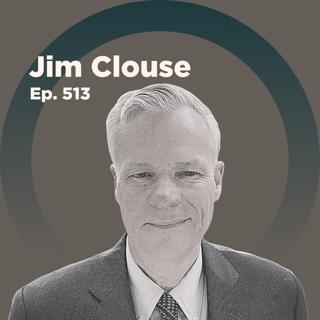
72 – Adam Millsap on Regional Business Cycles, State Fiscal Health, and Labor Mobility
Adam Millsap is an assistant director at the L. Charles Hilton Center at Florida State University and a senior affiliated scholar at the Mercatus Center. Today, he joins the show to discuss how different regional economies can lead to business cycles at the regional and state levels, rather than the federal level. This creates difficulty for monetary policy at the federal level as looser monetary policy may be appropriate for states like West Virginia, but may not be appropriate for states like California. He and David also discuss the decline of inter-state labor mobility and how bad regulation deters people from moving to areas with better job prospects. Description: David’s blog: macromarketmusings.blogspot.com/ Macro Musings podcast site: macromusings.com/ David’s Twitter: @DavidBeckworth Adam Millsap’s website: http://adammillsap9.wixsite.com/personal Adam Millsap’s Mercatus profile: https://www.mercatus.org/adam-millsap Adam Millsap’s Twitter: @AA_Millsap Related links: “Recessions Don’t Have the Same Impact on Every City” https://www.forbes.com/sites/adammillsap/2016/07/19/recessions-dont-have-the-same-impact-on-every-city/#58f3a28478d2 “State Fiscal Rankings https://www.mercatus.org/statefiscalrankings
28 Elo 201757min

71 – Betsey Stevenson on Challenges in the U.S. Labor Market
Betsey Stevenson is an associate professor of public policy at the University of Michigan and previously served as the chief economist at the U.S. Labor Department. Today, she joins the show to discuss her experience working at the Labor Department at a time of high unemployment as well as her more recent research on challenges in the U.S. labor market. Specifically, she talks about the problem of decreased male labor force participation and why “manly men need to do more girly jobs.” David’s blog: http://macromarketmusings.blogspot.com/ Macro Musings podcast site: https://macromusings.com/ David’s Twitter: @DavidBeckworth Betsey Stevenson’s University of Michigan profile: http://fordschool.umich.edu/faculty/betsey-stevenson Betsey Stevenson’s Twitter: @BetseyStevenson Related links: “Manly Men Need to More Girly Jobs” by Betsey Stevenson https://www.bloomberg.com/view/articles/2016-12-07/manly-men-need-to-do-more-girly-jobs “Want to Help the Economy? Learn to Trust” by Betsey Stevenson https://www.bloomberg.com/view/articles/2016-07-05/want-to-help-the-economy-learn-to-trust “Trust in Public Institutions over the Business Cycle” by Betsey Stevenson and Justin Wolfers http://users.nber.org/~bstevens/Papers/TrustinPublicInstitutions.pdf
21 Elo 20171h 3min

70 - Greg Mankiw on Macroeconomists as Scientists and Engineers
Greg Mankiw is a professor of economics at Harvard University and served as the chair of the Council on Economic Advisers under President George W. Bush. Today, he joins the show to discuss the history of macroeconomics and how macroeconomists function as both scientists, who formulate and test theories, and as engineers, who set out to solve real world problems. Greg also shares his thoughts on the debate between the New Keynesian School and New Classical School and how that debate has shaped how we think about economics. David’s blog: macromarketmusings.blogspot.com/ Macro Musings podcast site: macromusings.com/ David’s Twitter: @DavidBeckworth Greg Mankiw’s Harvard profile: https://scholar.harvard.edu/mankiw/home Greg Mankiw’s blog: https://gregmankiw.blogspot.com/ Related links: “The Macroeconomist as Scientist and Engineer” by Greg Mankiw https://scholar.harvard.edu/files/mankiw/files/macroeconomist_as_scientist.pdf Macroeconomics by Greg Mankiw https://www.amazon.com/Macroeconomics-N-Gregory-Mankiw/dp/1464182892
14 Elo 201758min

69 – Edward Harrison on the Political Economy of the Eurozone
Edward Harrison is a consultant with Global Macro Advisers and founder of the investment news blog *Credit Writedowns.* Today, he joins the show to discuss the political forces that led to the establishment of the Eurozone and the turmoil that has plagued it since the Great Recession. Edward also shares his thoughts on whether the Eurozone will survive. David’s blog: http://macromarketmusings.blogspot.com/ Macro Musings podcast site: https://macromusings.com/ Edward’s blog: https://pro.creditwritedowns.com/ David’s Twitter: @DavidBeckworth Edward Harrison’s Twitter: @edwardnh Related links: “Macron Will Need to Target Reforms Like a Laser” by Edward Harrison http://www.businessinsider.com/macron-will-need-to-target-reforms-like-a-laser-2017-5 “Some Pre-European Debt Crisis Signs are Popping Up Again” by Edward Harrison http://www.businessinsider.com/some-pre-european-debt-crisis-signs-are-popping-up-again-2017-4
7 Elo 20171h 1min

68 - Scott Sumner on Fed Performance since the Great Recession
In this week’s episode in front of a live audience, Scott Sumner, the director of the Program on Monetary Policy at the Mercatus Center and blogger at *The Money Illusion,* returns to the show to share his thoughts on the Federal Reserve’s performance from the Great Recession to the present. Scott explains how forecast targeting and price level targeting could have mitigated the economic decline in 2008 and 2009. He also shares his thoughts on how the cognitive biases of central bankers can cause them to make mistakes in evaluating the stance of monetary policy and offers some solutions to address this problem. Note: this episode was recorded as part of a special Mercatus Center event in June 2017. David’s Twitter: @DavidBeckworth David's blog: macromarketmusings.blogspot.com Scott’s Mercatus profile: https://www.mercatus.org/scott-sumner Scott's blog: www.themoneyillusion.com/ Related links: *The Midas Paradox: Financial Markets, Government Policy Shocks, and the Great Depression* by Scott Sumner https://www.amazon.com/Midas-Paradox-Financial-Government-Depression/dp/1598131508 “Nudging the Fed Toward a Rules-Based Policy Regime” by Scott Sumner https://www.mercatus.org/publication/nudging-fed-toward-rules-based-policy-regime “Demystifying the Fed” by Scott Sumner https://www.usnews.com/opinion/economic-intelligence/articles/2017-07-10/the-federal-reserve-needs-to-learn-from-its-monetary-mistakes “Inflation Forecasting Targeting: Implementing and Monitoring Inflation Targets” by Lars Svensson http://www.nber.org/papers/w5797
31 Heinä 201752min

67 – Lisa Cook on Households in the Great Recession, Economic Growth in Africa, & Patents
Lisa Cook is an Associate Professor of Economics at Michigan State University and formerly served as a senior economist at the Council of Economic Advisers under President Obama. Today, she joins the show to discuss her work on how the Great Recession affected households in the U.S. She also shares her thoughts on the prospects for economic development in Africa. Finally, she and David also discuss the U.S. patent system and whether the system is in need of reforms. (Note: We experienced some technical difficulties during the record of this episode. You’ll notice a slight change in audio quality around the 5 minute mark.) David’s blog: http://macromarketmusings.blogspot.com/ Lisa Cook’s profile: https://msu.edu/~lisacook/ David’s Twitter: @DavidBeckworth Lisa Cook’s Twitter: @drlisadcook Related links: “Consumer Finance and the Financial and Economic Crises: Implications from Household Surveys in Michigan” by Lisa Cook https://msu.edu/~lisacook/mich_cons_fin_jconed_022511.pdf “Were the Nigerian Banking Reforms of 2005 A Success ... And for the Poor?” by Lisa Cook http://www.nber.org/papers/w16890 “Violence and Economic Activity: Evidence from African American Patents, 1870-1940” by Lisa Cook http://lisadcook.net/wp-content/uploads/2014/02/pats_paper17_1013_final_web.pdf
24 Heinä 20171h 2min

66 - Ryan Cooper on Economic Anxiety, Populism, and Population Growth
Ryan Cooper is a national correspondent at *The Week.* He joins the show to discuss how bad economic policy has hindered strong economic recovery from the Great Recession. Furthermore, Ryan argues economic anxiety stemming from the Great Recession has given rise to populist and even extremist political movements throughout the world. Finally, Ryan and David discuss the folly of limiting population growth as a means of combating climate change and how slowing population growth presents many long-term economic challenges. David’s blog: http://macromarketmusings.blogspot.com/ Ryan Cooper’s *The Week* archive: http://theweek.com/authors/ryan-cooper David’s Twitter: @DavidBeckworth Ryan Cooper’s Twitter: @ryanlcooper “The Great Recession Clearly Gave Rise to Right-Wing Populism” by Ryan Cooper http://theweek.com/articles/685813/great-recession-clearly-gave-rise-rightwing-populism “The Federal Reserve is Still Wrecking America” by Ryan Cooper http://theweek.com/articles/696914/federal-reserve-still-wrecking-america “Why America is About to Start Freaking Out about Babies” by Ryan Cooper http://theweek.com/articles/625705/why-america-about-start-freaking-about-babies
17 Heinä 201759min

65 - Stephen Miller on Financial Crises, Capital Requirements, and the US Banking System
Stephen Matteo Miller is a Senior Research Fellow at the Mercatus Center at George Mason University. He joins the show to discuss his work on the history of financial crises as well as the evolution of the U.S. banking system since the late 1800s. Steph stresses the importance of capital requirements (how much capital or equity a bank holds relative to its liabilities) in combating financial crises. Furthermore, he argues that higher and simpler capital requirements, rather than more regulation, are the keys to a more market-disciplined banking system. David’s blog: http://macromarketmusings.blogspot.com/ Stephen Miller’s Mercatus profile: https://www.mercatus.org/stephen-matteo-miller David’s Twitter: @DavidBeckworth Stephen Miller’s Twitter: @SMatteoMiller Related links: “Ending Too-Big-to-Fail May Require More Than the Minneapolis Fed Too-Big-to-Fail Plan” by Stephen Miller https://www.mercatus.org/publications/too-big-to-fail-minneapolis-fed “A Primer on the Evolution and Complexity of Bank Regulatory Capital Standards” by Stephen Miller and James Barth https://www.mercatus.org/publications/primer-bank-regulatory-capital-standards *“To Establish a More Effective Supervision of Banking”: How the Birth of the Fed Altered Bank Supervision* by Eugene White http://www.nber.org/papers/w16825.pdf
10 Heinä 201759min






















